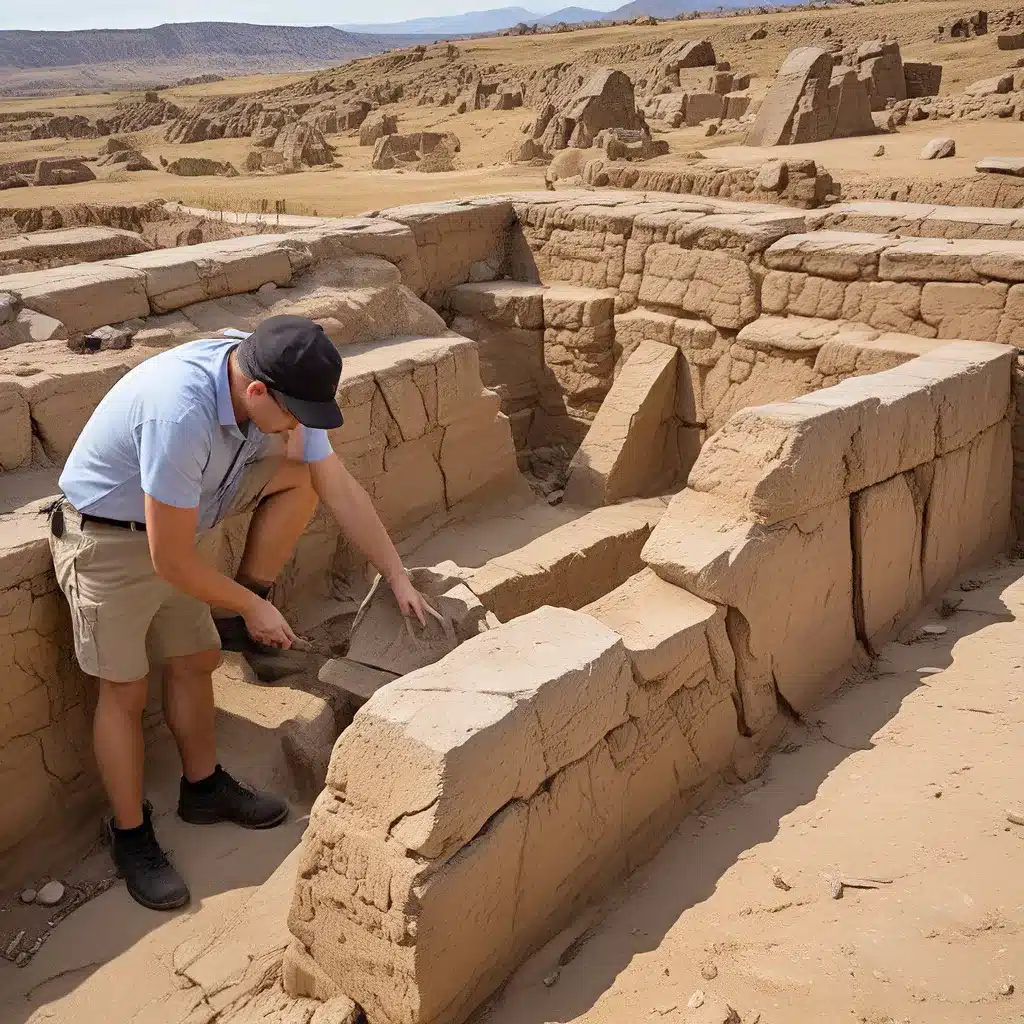
Uncovering the Truth: Debunking Myths and Discovering New Perspectives
In the ever-evolving field of archaeology, the pursuit of knowledge is a constant battle against preconceived notions and entrenched beliefs. As researchers delve deeper into the mysteries of the past, they often uncover evidence that challenges the conventional wisdom, shedding new light on ancient civilizations and their legacies.
One such example is the ongoing exploration of Roman Britain, a period that has long been shrouded in misconceptions. Archaeologist and bestselling author Simon Elliott has been at the forefront of this endeavor, challenging the traditional narrative and unearthing new insights about this pivotal era in history.
Through his extensive field work, Elliott has discovered that the post-Vandal Byzantine presence in the region was not a revival of the prosperous late Roman phase, as commonly believed. Instead, his investigations reveal that the Byzantine occupation was primarily a military endeavor, with the construction of small forts and an abundance of water troughs, suggesting a focus on cavalry control and policing the vast territory.
“This tells me that when the Byzantines came back to save the locals, they weren’t welcome and were reduced to policing this region with cavalry,” Elliott explains, highlighting the significance of his findings in rewriting the understanding of this period.
Uncovering the Mysteries of Ancient Civilizations
The challenges to conventional wisdom extend beyond the Roman era, as archaeologists uncover new insights into the intricate histories and cultures of ancient civilizations. Carausius, a figure once lost in the mists of time, has recently emerged as a pivotal player in British history, thanks to the meticulous work of researchers like Elliott.
Carausius, a Roman naval commander, rebelled against the Roman Empire in the late 3rd century AD and declared himself emperor of Britain and northern Gaul. This remarkable episode, which saw Carausius defy the might of the Roman imperial center, was long overshadowed by the victors’ accounts.
However, Elliott’s dedication to unearthing and analyzing every contemporary reference to Carausius, combined with the latest archaeological data, has allowed him to paint a comprehensive portrait of this historical figure. His work has not only restored Carausius to his rightful place in the annals of British history but has also challenged the traditional narratives that had relegated him to obscurity.
Embracing New Perspectives and Methodologies
The pursuit of archaeological knowledge is not just about uncovering new facts; it’s also about adopting innovative approaches and challenging established methodologies. As the field of archaeology evolves, researchers are increasingly embracing interdisciplinary collaborations and incorporating cutting-edge scientific techniques to uncover the secrets of the past.
One such example is the use of landscape archaeology, a holistic approach that examines the entire environment and ecosystem surrounding an archaeological site. Elliott describes himself as a landscape archaeologist, using an analytical skillset to tease out every last piece of interpretative data from a site or artifact and then presenting the big picture overview of what we are looking at.
This methodological shift has allowed researchers to gain a more comprehensive understanding of ancient civilizations, their interactions with the environment, and the broader societal and cultural contexts that shaped their development. By moving beyond the traditional focus on individual artifacts or excavation sites, landscape archaeology has opened up new avenues for exploring the past and challenging the conventional wisdom.
Embracing the Unexpected: Discoveries that Defy Expectations
The field of archaeology is rife with unexpected discoveries that challenge our preconceptions and force us to rethink our understanding of the past. From chance encounters with long-lost artifacts to serendipitous insights that rewrite historical narratives, the archaeological landscape is constantly evolving, offering glimpses into the lives and experiences of ancient peoples.
One such remarkable discovery made by Elliott was the Roman knife he found while leading the excavations on a Roman villa site in the Medway Valley. This seemingly ordinary object, recovered from the ruins of a catastrophically burnt-down Roman kitchen, offers a tangible connection to the daily lives of the villa’s occupants, shedding light on their culinary practices and the domestic sphere of Roman Britain.
Similarly, Elliott’s chance encounter with the rim of a huge Roman amphora, which he stumbled upon while examining a possible Roman burial site, serves as a powerful reminder that the past is often hidden in plain sight, waiting to be rediscovered and reinterpreted.
These serendipitous discoveries, combined with the rigorous research and analysis undertaken by archaeologists, are shaping our understanding of ancient civilizations and challenging the conventional wisdom that has long held sway.
Embracing Challenges, Embracing the Future
The journey of archaeology is one of constant discovery and evolution, marked by the relentless pursuit of knowledge and the willingness to challenge entrenched beliefs. As researchers like Simon Elliott continue to push the boundaries of our understanding, they are rewriting the narratives of the past and offering new perspectives that deepen our connection to the ancient world.
Through their dedication, innovative approaches, and openness to unexpected findings, archaeologists are shedding light on the complexities of human history and the diverse cultures that have shaped our collective past. By embracing these challenges and embracing the future, the field of archaeology promises to uncover even more profound insights, ultimately transforming our understanding of the world we inhabit today.


